

Eco-Friendly Outdoor Gear: 10 Sustainable Brands to Shop in 2023
by
Sarah Patel
As an avid outdoor enthusiast and sustainable travel writer, I believe that it’s essential to support companies that prioritize sustainability in their practices. When choosing eco-friendly gear, there are several factors to consider to ensure that we are making the best choice for the environment. Let’s take a closer look at what makes a brand environmentally responsible or not.
Production
The production process can have a significant impact on the environment, and it’s important to choose brands that use sustainable practices. For example, companies that use organic and natural materials like merino wool, down, organic linen, organic cotton, or hemp, that are responsibly and ethically sourced, are a good choice. Brands that use recycled materials such as polyester, cotton, and nylon also help combat climate change.
Location
The location of the brand’s manufacturing facilities can also impact the environment and human welfare. Some brands outsource their manufacturing to countries with poorly regulated standards for their workers. It’s essential to choose brands that prioritize fair trade, decent wages, and ethical practices.
Durability
The durability of outdoor gear is crucial in reducing waste and promoting sustainability. Choosing high-quality and durable products means that we are less likely to need to replace them frequently, resulting in less natural resources and gases produced.
Waste Finally, we should consider what happens to our products when they reach the end of their lifespan. Can they be recycled, biodegraded, or repurposed? It’s important to look for brands that prioritize the circular economy and have a take-back program to recycle or repurpose their products.
In light of these factors, here are ten sustainable outdoor brands that I trust and recommend:
1. Patagonia

Patagonia is a leader in sustainability, with a mission to “build the best product, cause no unnecessary harm, use business to inspire and implement solutions to the environmental crisis.” The company has implemented a range of initiatives to reduce waste and emissions, including using recycled materials, reducing water use, and using renewable energy in its operations.
2. The North Face
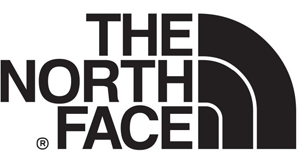
The North Face has made a commitment to sustainability, with a goal of using 100% renewable energy by 2025. The company is also focused on reducing its carbon footprint, using recycled materials in its products, and promoting ethical manufacturing practices.
3. REI Co-op
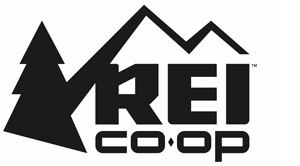
REI Co-op is committed to reducing its impact on the environment, and has implemented initiatives such as using renewable energy in its stores and reducing packaging waste. The company also promotes sustainable practices through its products, such as using recycled materials and supporting sustainable farming practices.
4. Cotopaxi
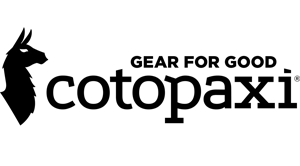
Cotopaxi is a sustainable outdoor brand that uses eco-friendly materials in its products and promotes sustainable practices through its foundation. The company also partners with organizations to support environmental conservation and social development programs.
5. NEMO Equipment
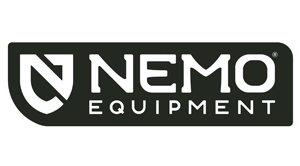
NEMO Equipment is committed to sustainability and uses recycled and environmentally-friendly materials in its products. The company also supports environmental conservation programs and initiatives to reduce waste and emissions.
6. Toad&Co

Toad&Co is a sustainable apparel company that uses eco-friendly fabrics and production methods to create high-quality outdoor clothing. The company also supports sustainable farming practices and conservation programs.
7. United By Blue
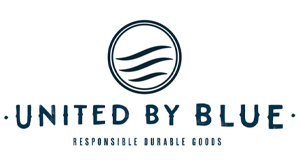
United By Blue is dedicated to reducing plastic pollution in the ocean and uses recycled materials in its products. The company also partners with organizations to host beach and waterway cleanups and promote sustainable practices.
8. BioLite

BioLite creates sustainable outdoor gear and energy products, and is committed to reducing carbon emissions and promoting sustainable practices. The company also supports initiatives to provide clean energy to people in off-grid communities.
9. Fjällräven

Fjällräven is committed to sustainability and uses eco-friendly materials in its outdoor gear and apparel. The company also supports conservation programs and initiatives to reduce waste and emissions.
10. tentree

tentree creates sustainable outdoor gear and apparel, and has committed to planting 1 billion trees by 2030 to combat deforestation. The company also uses eco-friendly materials and production methods in its products, and supports sustainable farming practices.
In conclusion, choosing sustainable outdoor gear is essential for reducing our impact on the environment. By investing in eco-friendly brands, we are making a statement that we prioritize ethical and sustainable practices. For more information on sustainable camping, check out our articles on the benefits of wool camping blankets, the best solar-powered lanterns for camping, sustainable campfire practices, and zero waste camping. Let’s make conscious choices and protect the environment while enjoying the great outdoors!
Author

Sarah Patel
Sarah is a travel writer and photographer, with a passion for exploring new destinations and cultures. She's traveled extensively throughout the world and has written for several major travel publications. Sarah is also an avid camper and outdoor enthusiast, and loves to combine her love of travel with her love of the outdoors. She's always on the lookout for unique and off-the-beaten-path campsites
Recent Posts


